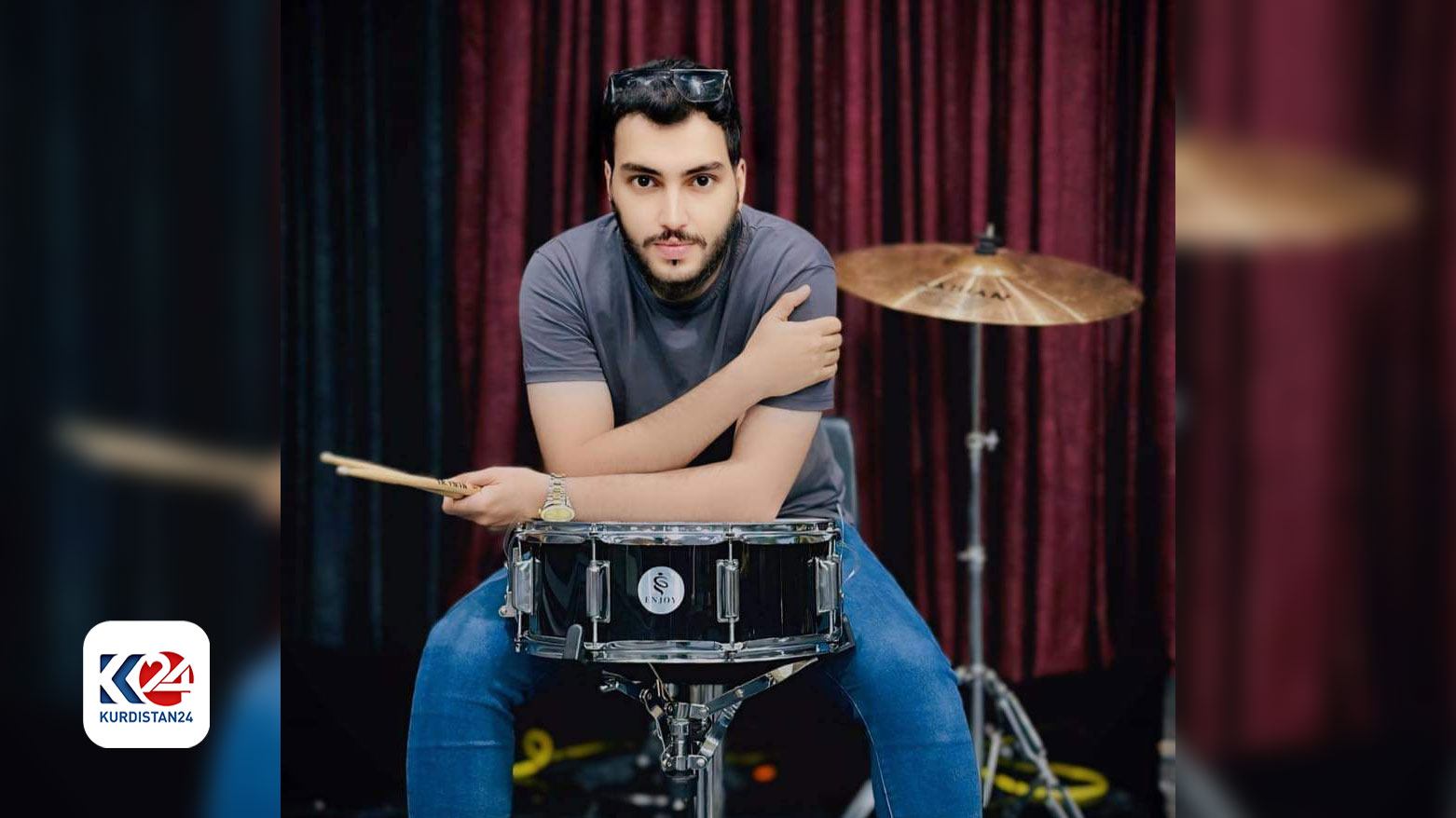The withdrawal of great composers led us to use music from other countries, Shadman Mohammed
“Kurdish music is not poor, but it appears so due to several reasons. One major issue is our failure to gather and preserve the rich musical sources within the folk music of Kurdistan."

ERBIL (Kurdistan 24) – In an interview with Kurdistan24, musician Shadman Mohammed discusses his work, activities, and future projects. Shadman reveals that he is currently writing a book about a new perspective on rhythm for a musical instrument.
Reflecting on his early career, Shadman shared, “At the tender age of eleven, I started learning music at home, inspired by my older brother, a musician who significantly influenced and inspired my life. I consider myself a learner now, like a vast and clear ocean that never ends.”
Shadman addressed the perceived decline in Kurdish music quality in recent years, stating, “Kurdish music is not poor, but it appears so due to several reasons. One major issue is our failure to gather and preserve the rich musical sources within the folk music of Kurdistan, such as Kurmanci, Hawrami, and Germiani music. There is no official collection of these methods available. Another reason is the silence and withdrawal of great artists like Ziad Asad, creating a significant gap in Kurdish music. If these artists produced even two works a year, it would help fill this gap. Unfortunately, this has led us to resort to music from other countries.”
Discussing his skills, Shadman said, “I play drums, percussion, and violin. Each of these instruments has a world, a feeling, and a soul. They differ in technique, music, melody, and the regions they come from.”
When asked about the current condition of Kurdish music, Shadman explained, “The disappearance of spiritual and social relationships, the introduction of commercial minds, and ignorance of the principles of music have all impacted Kurdish music. Music is spiritual food, and it used to have a spirit with no material purpose, but times have changed.”
Shadman highlighted the impact of technology on music production, saying, “Technology has brought both benefits and harms. Previously, producing a music album involved several stages and filters before it reached listeners. Now, you can easily produce a track at home and publish it.”
Regarding his new projects, Shadman stated, “I am writing a book about a new perspective on rhythm for a musical instrument and working on several new activities and programs.”
Shadman Mohammed, 27, from Halabja, currently resides in Sulaimani and is one of the most prominent young musicians working on new rhythmic instruments.